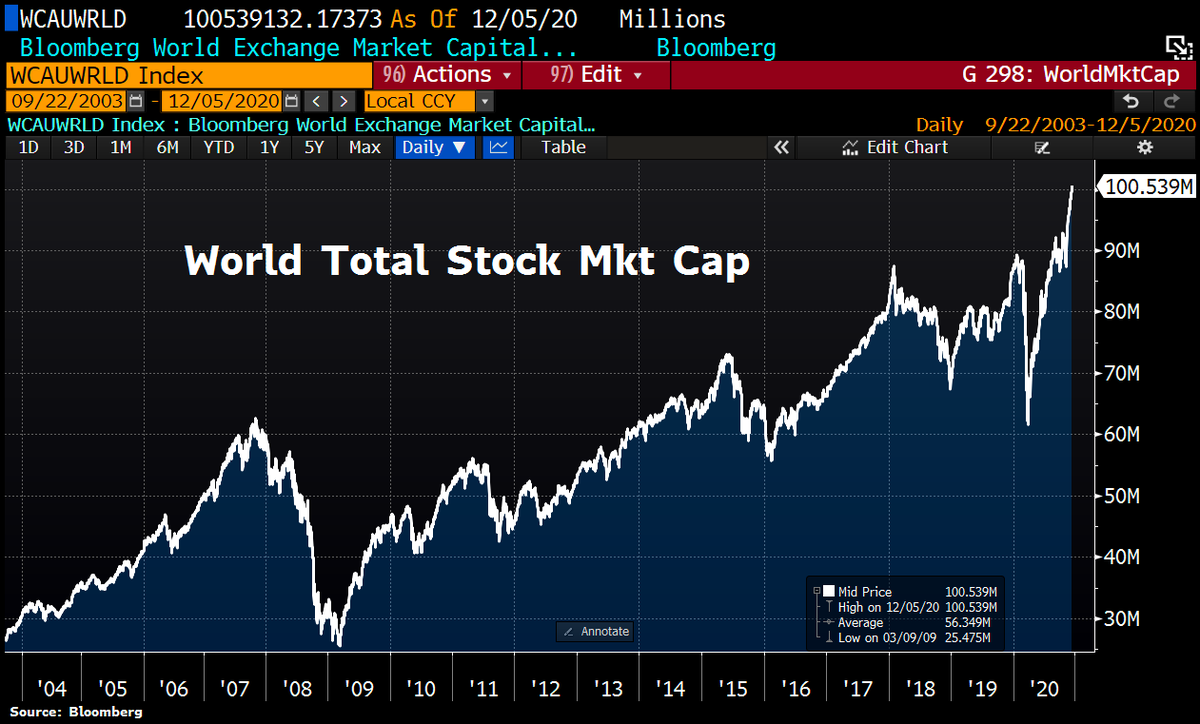My back to work morning train WFH reads:
• Electric-Car Companies Are Now Half the Worth of the World’s 10 Most Valuable Automakers: Stop dissing electric-car companies already: 2020 was the year when investors reconfigured the $2.7 trillion auto industry. Electric-car companies are suddenly worth half of the total market capitalization of the world’s 10 most valuable automakers. That’s because money managers sized up the convergence of government policies and people’s preferences combating climate change and made alternative energy their biggest bet. (Bloomberg)
• Iowa Is What Happens When Government Does Nothing To visit Iowa right now is to travel back in time to the early days of the coronavirus pandemic in places such as NYC and Lombardy and Seattle, when the horror was fresh and the sirens never stopped. Sick people are filling up ICUs across the state. Hospital CEOs are begging Iowans to hunker down and please, for the love of God, wear a mask. This sense of new urgency is strange, though, because the pandemic isn’t in its early days. The virus has been raging for eight months in this country; Iowa just hasn’t been acting like it. The story of the coronavirus in the state is one of government inaction in the name of freedom and personal responsibility. (The Atlantic)
• How America Invests 2020 Detailed data on the portfolio construction and trading behavior of Vanguard clients in more than 5 million retail households to provide an understanding of personal investor behavior. It covers five years of data, from 2015 through 2019, which was generally a period of robust market growth. It also provides a quick look at investor reactions to the sharp market decline in the first quarter of 2020, attributable to the COVID-19 pandemic (Vanguard)
• I Started Trading Hot Stocks on Robinhood. Then I Couldn’t Stop. In the end, after three hectic weeks, I finished with $95.01. I’d lost 5% of what I’d put in. Counting the free stock I’d gotten, I was down 10.2%. Over the same period, the S&P 500 went up 7%. The lesson? You can’t invest without trading, but you can trade without investing. Even the most patient and meticulous buy-and-hold investor has to buy in the first place. (Wall Street Journal)
• How Women Can Take Control of Their Financial Lives Are we generalizing? You bet. But as loathsome as the notion of stereotyping women as being no-good-at-the-money-stuff is, there’s an alarming amount of data demonstrating that women in general simply don’t engage with their finances often, or thoroughly, enough. (Barron’s)
• Making Sense of Sky-High Stock Prices Many have been puzzled that the world’s stock markets haven’t collapsed in the face of the COVID-19 pandemic and the economic downturn it has wrought. But with interest rates low and likely to stay there, equities will continue to look attractive, particularly when compared to bonds. (Project-syndicate)
• Republicans are complaining (again) about the budget deficit. Ignore them In the time-world of political hypocrisy, you can set your watch by how quickly after the election of a Democrat as president the Republican congressional caucus starts whining about the federal budget deficit. This phenomenon has surfaced already, a mere month after the election. (LATimes)
• A change in Spotify’s royalty payments could be a problem for hip-hop A new Spotify feature that allows labels and artists to take a lower per-stream payment in exchange for an algorithmic boost through its “autoplay” and “discover” features could have a disproportionate impact on hip-hop artists. (The Undefeated)
• AI has cracked a problem that stumped biologists for 50 years. It’s a huge deal. “This will change medicine, It will change research. It will change bioengineering. It will change everything.” DeepMind, an AI research lab now an independent part of Google’s parent company Alphabet, announced a major breakthrough on the “protein folding problem” that can help us understand disease and discover new drugs. (Vox)
• Barbra Streisand Is, as Ever, Firmly in Control Streisand says she’s earned millions trading stocks — several million between 1998 and 2000 alone. (“I’d be up at 6:30, light a fire, have a hot chocolate and trade until 1 p.m.”) She admits she’s not the most disciplined investor: She panicked during the crash in 1987 (“I lost a fortune”), and again in March when the market plunged because of pandemic fears. But her instincts have been sound: She bought Apple, Amazon, Netflix and Google shares when her then-financial adviser said they were too speculative. (New York Times)
Be sure to check out our Masters in Business interview this weekend with Catherine Keating, CEO of BNY Mellon Wealth Management. The group has $265 billion in assets, Previously, she was the Chief Executive Officer of Commonfund. Keating has been named to the “Most Powerful Women in Finance” list and one of the “Most Powerful Women in Banking” list by American Banker.
Global equities now worth $100 Trillion, equal to 115% of global GDP

Source: @Schuldensuehner
Sign up for our reads-only mailing list here.

